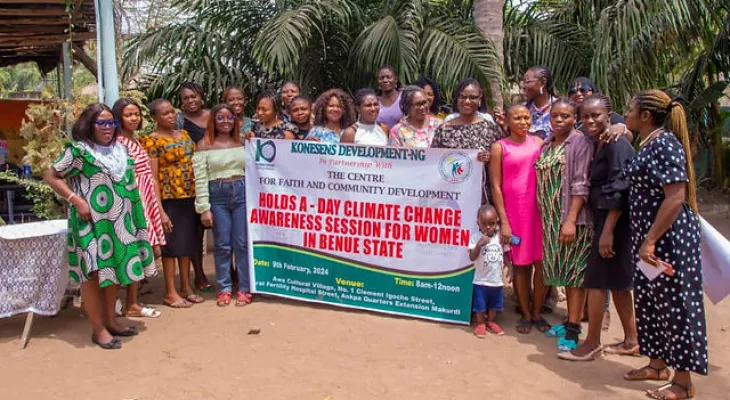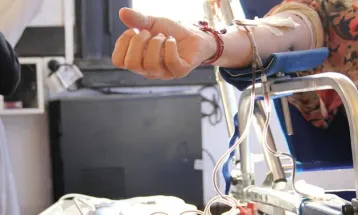
ASJD And Others Host Climate Change Adaptation Training Session For Women And Girls in Kono
In an effort to empower rural women and address the pressing issue of climate change, the Advocate for Social Justice and Development (ASJD) collaborated with various organizations to conduct a comprehensive training session aimed at women and girls from three chiefdoms in Kono district.
The event, titled “Strengthening Rural Women and Girls’ Resilience in Climate Adaptation for Sustainable Livelihoods,” took place on May 2nd, 2024, at the Old Youth Center in Koidu City. The overarching goal was to equip participants from Tankoro, Kamaa, and Nimikoro chiefdoms with the necessary knowledge and skills to adapt to climate change challenges and embrace sustainable practices in their communities.
Mr. Arthur Kargbo, the Executive Director of ASJD, provided insights into the project’s year-long strategy, which aims to ensure that beneficiaries adopt climate-resilient practices by its conclusion. He emphasized the importance of translating the training into actionable plans, with financial support contingent upon the implementation of these plans.
Madam Christine Petiquoe, the Coordinator of the Kono Women’s Organizations Network (KOWONET), highlighted the project’s emphasis on women’s leadership. She mentioned the possibility of financial assistance amounting to NLe 10,000 for six women’s groups from each chiefdom, contingent upon the successful completion of the training.
Mr. Willie Sylvernus Collier, representing the Environmental Protection Agency (EPA) in Kono District, addressed critical environmental issues during the training session. His presentation covered topics such as understanding climate change, promoting sustainable farming techniques, and fostering collaboration with media outlets and women-led organizations like KOWONET. These topics were presented in a clear and actionable manner to ensure maximum understanding among the participants.
Mr. Sahr Samuel Joe, a co-facilitator, led a session on developing action plans, encouraging participants to propose solutions to pressing environmental challenges such as deforestation, bush burning, and charcoal production. The participants generated a diverse range of plans, including promoting sustainable practices, raising community awareness, engaging in local environmental projects, advocating for policy changes, and implementing sustainable agriculture. These plans also encompassed initiatives to contribute to a circular economy, adopt green technologies, monitor environmental changes, support sustainable businesses, and facilitate intergenerational learning.
The organizations involved in the training expressed their commitment to collaborate in implementing these action plans, underscoring the importance of collective action in addressing climate change challenges at the grassroots level.
While acknowledging the inherent challenges in changing long-standing practices, participants expressed their determination to tackle climate change for the betterment of future generations. Their dedication reflects a growing awareness of the urgency of climate action and the vital role that women and girls play in building resilient communities.
As the training concluded, participants left with newfound knowledge and a renewed sense of purpose, ready to champion climate resilience and sustainable development in their respective communities.

















